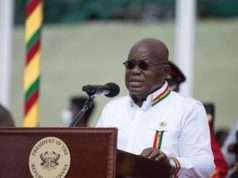The World Bank Managing Director in charge of Operations, Ann Bjerde, who made the call, said the country’s problems in the energy sector were very serious and would get worse with debilitating effects on economic growth if not addressed.
“Once the problems are at the level that Ghana has, if not arrested and addressed with an emergency action plan, things will get worse, and this will cost the state more to keep the energy sector running at a time money is needed for other things,” she said.
She stated this during an interaction with journalists in Accra last Friday to end her three-day visit to the country.
Ms Bjerde stressed that the emergency energy plan must be comprehensive, robust and focused on investment in metering, billing and efficient collection of revenue to ensure a vibrant sector.
While in the country, she held discussions with President Nana Addo Dankwa Akufo-Addo, Vice-President Mahamudu Bawumia, and the Minister of Finance, Ken Ofori-Atta, on Ghana’s economic situation and the need for bold reforms to address the challenges.
Ms Bjerde said one of the issues that came up strongly for discussion was the need for urgent action to contain the challenges in the energy sector.
Vulnerable populations
She underscored the need for the ministries of Energy, Finance, and Gender and Social Protection to work together to ensure that the implementation of the energy plan was done in a manner that protected vulnerable groups.
Ms Bjerde said the World Bank would offer expert advice on how to integrate social protection into the energy plan to ensure that the vulnerable populations were protected in the wake of tariffs increment associated with the energy reforms.
“It is not rocket science; it is difficult, it requires a lot of attention day to day to get it done. But it can be done. If it is left unattended to, the problem will be worse and will cost the state more,” she said.
Ms Bjerde stressed that the billing and collection of revenue would have to be efficient on the basis of proper metering.
“That way, you will know where the problems are. If you are providing electricity, billing for it and not collecting, you will know where the problems are then you can go and collect the revenue.
“If there are customers that just refuse to pay, you may also have to disconnect them,” he said.
Technical support
Ms Bjerde said the World Bank was ready to support the country to implement the plan by providing technical advice on what needed to be done in terms of the billing, metering and revenue collection.
In doing so, she said, it was important to set up a dedicated account to hold all the different revenue flows in the energy sector.
“This will ensure that those who are generating the electricity are paid to sustain power supply,” she said.
The World Bank Managing Director, Operations, underscored the need for the government to look more towards bolstering public-private partnerships and exploring the possibility of outsourcing certain functions and other initiatives to cut energy losses.
“Energy that is lost should really be energy that is consumed and properly accounted for,” she said.
Ms Bjerde also emphasised the need to fix challenges along the value chain, especially by ensuring that independent power producers (IPPs) were paid, stressing that “without IPPs, gas production, distribution and transmission companies, we cannot sustain the sector”.
“Most of the costs in the energy sector are not on the front of the distribution company; it is on the generation side, so the money needs to flow from where you collected it back up to the generation of electricity. And if it does not, the generators cannot keep producing electricity, and you will end up with interruption of supply, and this will really cause more economic problems because economic growth will be impacted,” she said.
Energy potential
Ms Bjerde said Ghana had a huge potential to become a regional hub of energy.
She, therefore, urged the country to do the right investments to make sure that transmission and interconnection agreements with other countries that needed electricity were pursued to the maximum.
She said one exciting area was to make a transition from conventional energy to renewables.
“There is a huge potential in solar energy, and around the world, what we have seen is that when countries shift to renewable energy, they will need to make commensurate investments in transmission and equipment because it requires investment to be able to accommodate renewable energy technology,” she said.
Ms Bjerde also urged government to look at developing local manufacturing capacities to have advantage in certain areas of growth.









































